15 Top Hotels in Japan to Book Right Away
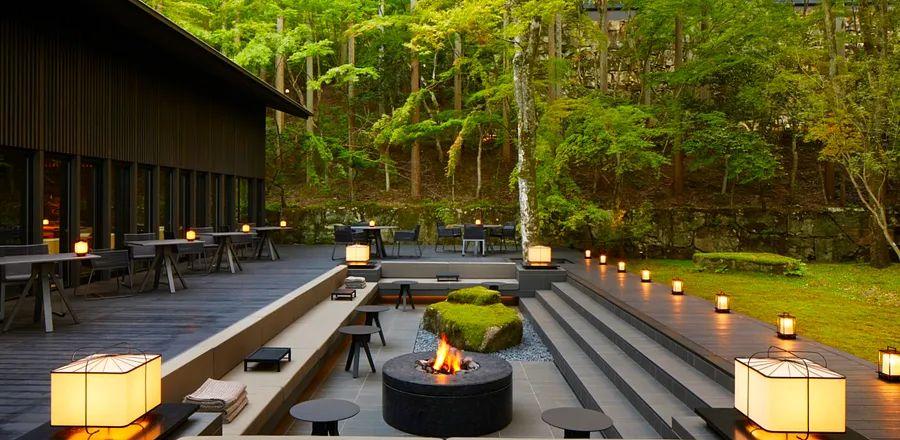
A truly enriching experience for any traveler in Japan is the opportunity to encounter omotenashi, the nation’s renowned hospitality philosophy that emphasizes genuine care for others without expecting anything in return. Staying in hotels and inns provides an immersive way to appreciate this unique aspect of Japanese culture.
Keeping this in mind, we’ve thoughtfully selected 15 retreats throughout the country that exemplify the finest accommodations Japan has to offer. Ranging from sleek urban skyscrapers to charming rural ryokans, these top hotels invite guests to connect with their surroundings, often in lesser-known areas, while presenting their own interpretations of omotenashi at every opportunity.
In no specific order, here are our selections for the 15 finest hotels in Japan.

Aman, Tokyo
1. Aman Tokyo
Renowned for its retreats nestled in breathtaking natural landscapes, Aman Resorts made its urban entry in 2014 with Aman Tokyo. This location brings the brand’s unique cultural experiences and exceptional service right to the heart of Japan's capital. Guests are welcomed by elevators opening into a 33rd-floor lobby featuring a grand atrium and a seasonal ikebana floral display gracefully hovering above a reflecting pool. The 84 guest rooms, inspired by traditional Japanese ryokans and designed by Singapore's Kerry Hill Architects, rank among the largest entry-level accommodations in the city. They epitomize minimalist design with chestnut flooring, sliding shoji screens, expansive floor-to-ceiling windows, and generously sized stone furo soaking tubs, perfect for a leisurely afternoon. The spa boasts onsen-style baths and a 98-foot pool offering stunning city views, along with treatments that draw from Japan’s traditional herb-based Kampo healing methods.

Courtesy of Mandarin Oriental, Tokyo
2. Mandarin Oriental, Tokyo
Occupying the upper nine floors of the Nihoni Mitsui Tower, crafted by the esteemed Argentine architect César Pelli, the Mandarin Oriental offers breathtaking views of Mount Fuji to the west, Tokyo Skytree and the Sumida River to the east, and Tokyo Bay to the south. The hotel draws design inspiration from nature, resembling a tree; the entrance at the tower's base symbolizes its trunk, while the top floor features fabrics and carpets that evoke leaves and branches, creating a forest canopy ambiance. With 157 rooms and 22 suites adorned with bonsai trees and cherry blossom designs, guests are enveloped in tranquility. The spa on the 37th floor offers a signature “Totally Tokyo” treatment utilizing pine, bamboo, plum, green tea, and rice hulls to invigorate the senses and promote clarity. For dining, options include French, Cantonese, and Italian cuisine.

Courtesy of Hiiragiya
3. Hiiragiya
Founded in 1818, this historic ryokan in Kyoto has been operated like a sacred temple by six generations of the Nishimura family. It serves as a sanctuary for guests to deeply experience the traditional Japanese inn lifestyle—think low lacquer tables, sliding fusuma doors, exquisite multi-course kaiseki meals, and immaculate white shoji screens. Enjoy the sight of Japanese white-eye birds darting through the private camellia garden; wrap yourself in a yukata to savor in-room dining featuring abalone with miso egg yolk sauce and sea urchin chawanmushi (savory egg custard) served on beautiful Kiyomizu ceramics, and unwind with a nightcap of sake before resting on the freshly laid tatami mat in one of the property’s 28 rooms.

Courtesy of Aman Kyoto
4. Aman Kyoto
The location is a significant draw: 80 acres of tranquil forest at the base of Mount Daimonji, just 30 minutes from Kyoto Station and 5 minutes by car from the renowned Kinkaku-ji temple. Aman Kyoto features 26 contemporary suites situated on an ancient riverbed covered in lush greenery. The forest is adorned with native maples, cedars, and blue oaks, providing a perfect backdrop for forest bathing experiences. Much of the property utilizes materials sourced from the surrounding woods—cypress soaking tubs, heated stone bathroom floors, and bamboo dividers create a serene and restorative environment with clean minimalist lines and diverse textures.

Miyamasou
5. Miyamasou
The journey to Miyamasou is an adventure in itself. The hour-long drive from Kyoto along a winding road takes you through cedar forests, quaint towns, and various temples and shrines. This ryokan is renowned for its two Michelin-starred multicourse kaiseki dinners that highlight ingredients sourced from the surrounding forest, such as ginkgo nuts and carp sashimi from a nearby river. After enjoying a soak in the heated mountain spring water, guests can dine in their yukatas in private rooms. The five pristine accommodations feature tatami floors and sliding doors that open to terraces overlooking a rushing river, with its soothing sounds lulling guests to sleep at night. Advance booking is essential due to the inn’s small size and esteemed reputation.

Jennifer Flowers
6. Kayotei Ryokan
There’s a reason renowned chefs like Eric Ripert make the journey to Yamanaka, a hot springs town in Ishikawa prefecture along Honshu’s coast: they come to pay homage to Kayotei Ryokan, a 10-room private inn featuring onsen baths filled with natural mineral springs from beneath. Here, multi-course kaiseki meals are crafted primarily from organic produce sourced from the surrounding agricultural region, encompassing everything from fish to tofu. Each ingredient tells a story: the rice farmer employs ducks for pest and weed management instead of chemicals, and the winter nori (seaweed) is harvested by daring individuals braving the powerful waves and treacherous rocks along the shore. Reserve one of the tatami-floored rooms with a private onsen, and be sure to explore the impressive collection of antique tansu scrolls and pottery displayed throughout the inn.

Courtesy of Higashiyama Niseko, a Ritz-Carlton Reserve.
7. Higashiyama Niseko Village, a Ritz-Carlton Reserve
Nestled at the foot of the relaxed Niseko Annupuri ski resort, the ski-in, ski-out Higashiyama Niseko Village, a Ritz-Carlton Reserve, simplifies your skiing experience with on-site gear rentals, lesson arrangements, and lift pass sales available in the lobby. Guests enjoy priority access to a high-speed gondola that services 70 runs and offers 2,191 acres of skiable terrain. The 50 guest rooms are designed with large windows that overlook either Mount Yōtei (Niseko’s equivalent to Mount Fuji) or the forested slopes, which remain beautiful in summer when international skiers depart and domestic visitors arrive. The slate-clad ofuro tub in the bathroom provides a peaceful soaking experience with a view, though it pales in comparison to the spa's indoor and outdoor thermal baths, which offer rejuvenation year-round.

Aaron Jamieson
8. Park Hyatt Niseko Hanazono
Park Hyatts in Japan offer an unparalleled experience, arguably standing out as the most authentically Japanese among international hotel chains, infused with generous elements of omotenashi. Opened in 2020, Park Hyatt Niseko Hanazono features 100 spacious rooms—28 of which are suites, each with its own private onsen—spread across four distinct buildings, all overlooking the Annupuri range. The spa, nestled by a stream and surrounded by birch trees, includes a pool and a tattoo-friendly onsen—a rare find in Japan, where tattoos can still carry stigma.
The accommodations boast deep soaking tubs, oversized beds, expansive walk-in closets perfect for stowing away bulky winter gear, and sofas that convert into extra beds for families or small groups. Nearly a dozen dining options are available, including a deli, sushi counter, a cozy charcoal-grill robata, and French-Japanese teppanyaki, along with a private karaoke dining room. Onsite ski valet services pamper guests, while an early-bird First Tracks program led by the general manager allows access to the slopes before they open. Summer activities available for booking range from golf and zip-lining to cycling, rafting, and visits to the National Ainu Museum, which celebrates the culture of the Ainu people.

Courtesy of Kai Beppu
9. Kai Beppu
Opened in 2021, this 70-room oceanfront haven is situated in Beppu, just 90 minutes from Fukuoka on Japan’s southernmost island, Kyushu. Designed by renowned Japanese architect Kengo Kuma, the building features sho sugi ban, a traditional method of charring cedar to enhance its fire resistance. Like many locations in Beppu, the highlight here is the rejuvenating onsen, which includes private balcony ofuro tubs, a beautifully landscaped ground-level onsen, and a striking glass infinity footbath, all rich in hydrogen carbonate for skin-softening benefits. Taking inspiration from onsen towns, Kai Beppu offers an in-house street food market and nightly performances from a lively onsen jug band—a truly unique experience found only in Japan.

Hirofumi Inaba
10. Hoshinoya Taketomi
This small southern Okinawan island, part of the Ryukyu archipelago, serves as a tropical getaway housing Hoshinoya Taketomi. The resort features 48 spacious villas adorned with red roofs carved with Shisa lion figures, nestled around a breezy dune of coral sand. Accommodations offer large soaking tubs, daybeds that invite refreshing breezes, and stone walls for added privacy. Relax with a fresh shikuwasa juice, made from a native citrus, and enjoy vibrant Okinawan music performances along with strolls on the white-sand Kaji Beach, famous for its star-shaped grains. Cool off in the afternoon with laps in the long sunken oval pool, which is equally enchanting at night when the Iriomote Dark Sky Reserve twinkles above.

Courtesy of Nishimuraya Hotel Shogetsutei
11. Nishimuraya
Nestled in the picturesque seaside town of Kinosaki Onsen, just 2.5 hours northwest of Kyoto, Nishimuraya Hotel Shogetsutei sits along the willow-lined Otani-gawa River. The ancient town, established in the eighth century, boasts seven enchanting onsens, each with its unique charm, where the sound of wooden geta sandals clattering on the pavement is a common delight as visitors hop from one onsen to another. Nishimuraya features two properties: the modern Hotel Shogetsutei and the traditional Honkan, which includes 32 rooms designed in the Sukiya style reminiscent of tea houses, complete with wooden terraces, sliding screens, and large windows overlooking Japanese gardens adorned with karikomi sculpted shrubs and trees. The private onsens at Nishimuraya Hotel Shogetsutei are the most stunning in the area, offering views of a 30-acre mountain forest, making them perfect for families seeking privacy or tattooed guests who may not access the regular onsens.

Courtesy of Azumi Setoda
12. Azumi Setoda
Ikuchijima Island is renowned for its lemons and the Shimanami Kaido cycling route. Adrien Zecha, the founder of Aman Hotels, has introduced another compelling reason to visit: Azumi Setoda, a retreat housed in the historic 146-year-old residence of the prominent Horiuchi family. This minimalist inn, situated in the town of Setoda, was designed by Kyoto-based architect Shiro Miura. The retreat embodies the tranquil spirit of the Seto Inland Sea while remaining close to the famous art islands, such as Naoshima, known for Yayoi Kusama’s iconic yellow pumpkin installation. Features like curved roof tiles, exposed beams, and a courtyard with a cherry tree provide a glimpse of Old Japan. Guest rooms include rice paper screens, cypress wood bathtubs, and gardens overlooking a landscaped courtyard, while the complimentary community bathhouse across the street adds to the experience.

Courtesy of Simose Art Garden Villa
13. Simose Art Garden Villas, Hiroshima
A new art complex and resort has emerged on the Seto Inland Sea in Otake, Hiroshima Prefecture, having opened in April 2023 near the UNESCO-listed Itsukushima Shrine on Miyajima. This collection of buildings, designed by Pritzker Prize-winning architect Shigeru Ban, includes four refurbished villas from the 1990s, showcasing Le Corbusier-inspired designs adorned with vibrant Mondrian-style panels. Five additional waterside villas incorporate an Austrian lightweight Kielsteg design, featuring sliding wooden panels with keyholes for natural light, while two rooms boast deep cypress ofuro tubs. A glass-walled French restaurant and a mirrored museum, complete with floating and illuminated gallery modules, are accessible to the public, but museum access is exclusive and complimentary for guests during the evenings and mornings.

Courtesy of Fufu Kawaguchiko
14. Fufu Kawaguchiko
It’s difficult to rival the stunning views of Mount Fuji at this modern boutique hotel, which opened in 2018 in the wine-centric town of Kawaguchiko, located about two hours southwest of Tokyo by bullet train. The 32 guest rooms feature expansive glass windows overlooking the tranquil Lake Kawaguchi, situated approximately three miles away, each equipped with private balcony onsen tubs crafted from Fuji lava stone. The atmosphere is enhanced by outdoor firepits and cozy cashmere throws. The onsite restaurant complements local wines with seasonal dishes, including Fuji Sakura Pork seared on lava stone and served with blueberry butter.

Courtesy of Conrad Osaka
15. Conrad Osaka
Positioned on the 33rd to 40th floors of the Festival Tower West skyscraper, the sleek silver and walnut interiors of the 164-room Conrad Osaka create a stylish retreat amidst the vibrant city life. This premium Hilton brand overlooks Osaka’s lively Nakanoshima neighborhood and boasts a collection of 389 contemporary art pieces. Spacious rooms are adorned with cherry-red lacquer accents, while traditional sobagara pillows, made from buckwheat husks, add a touch of authenticity. Be sure to visit the spa, where the wellness menu features indulgent treatments like sake and yuzu-infused baths.
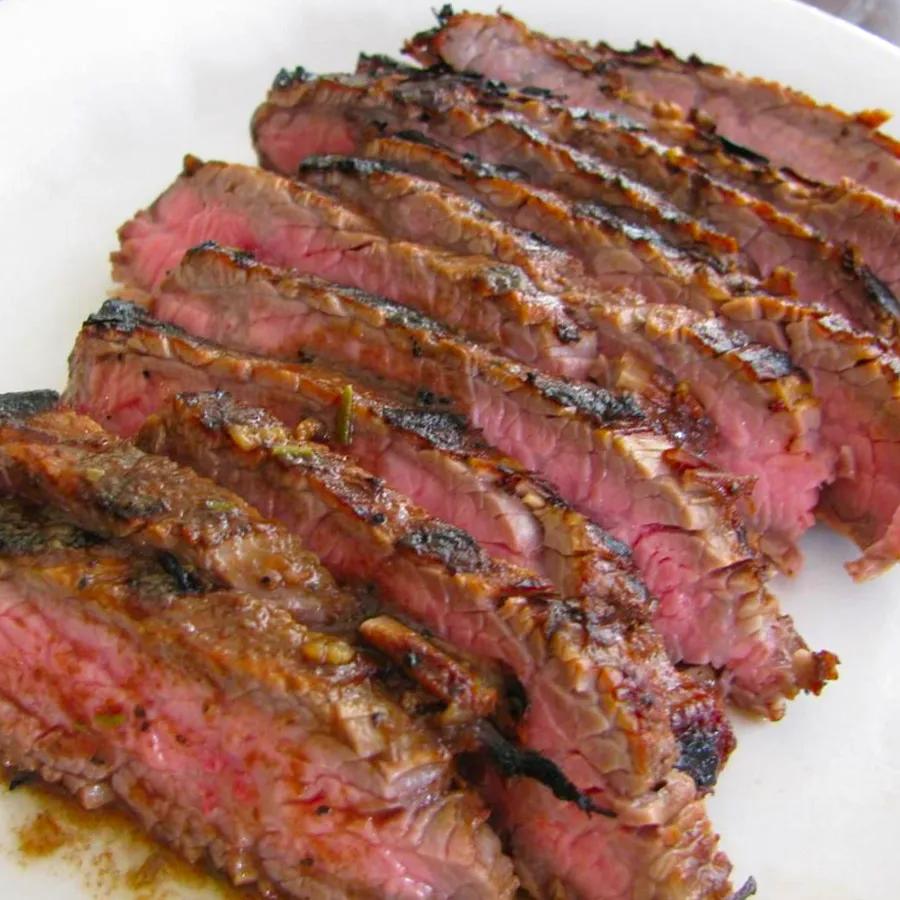
1
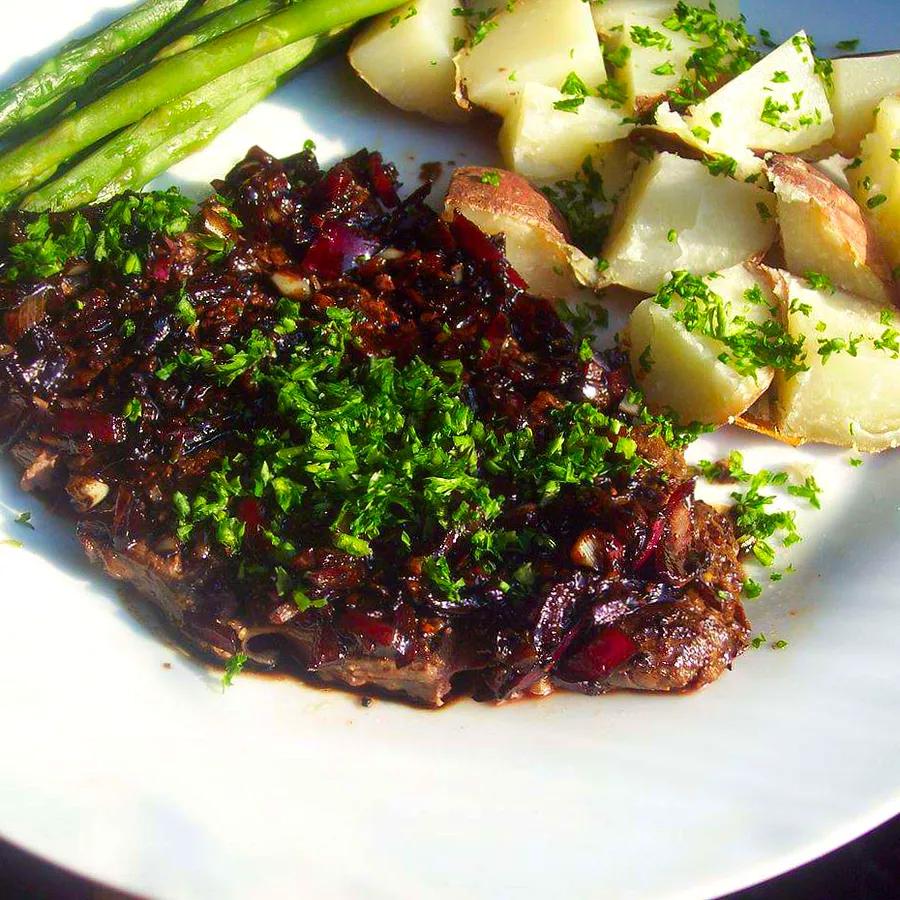
2
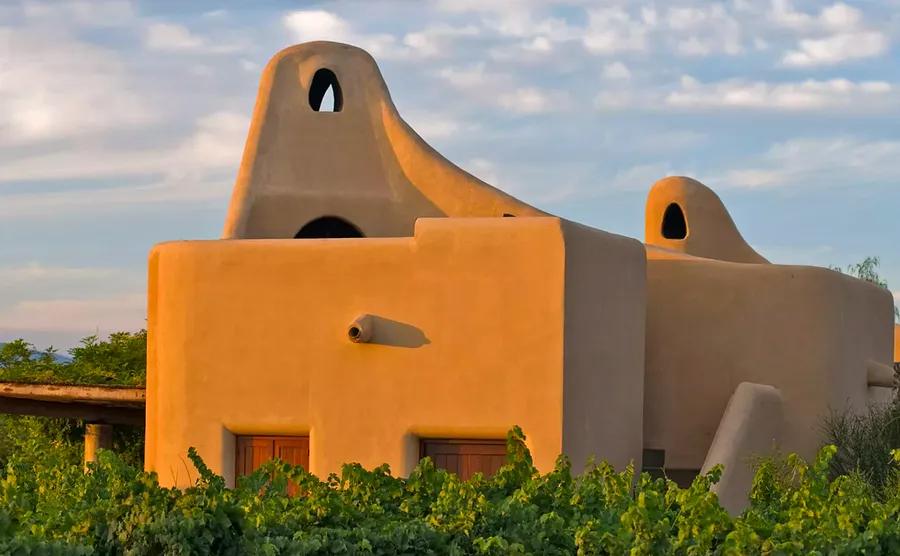
3
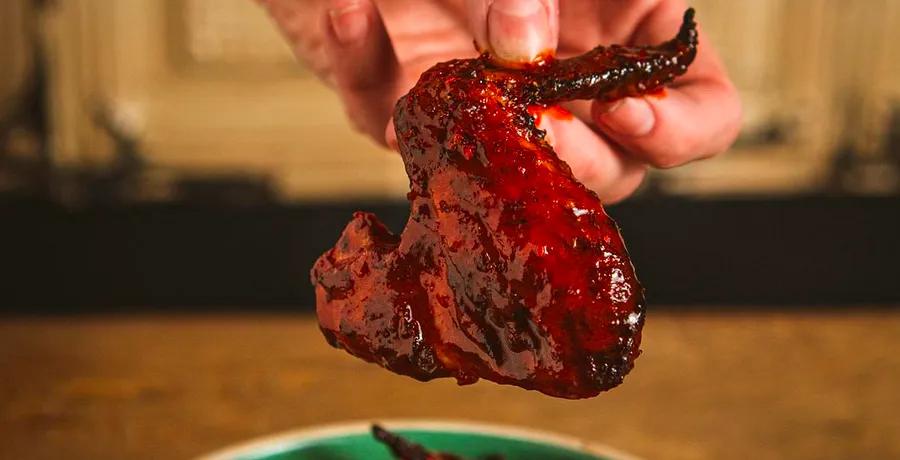
4

5
Evaluation :
5/5